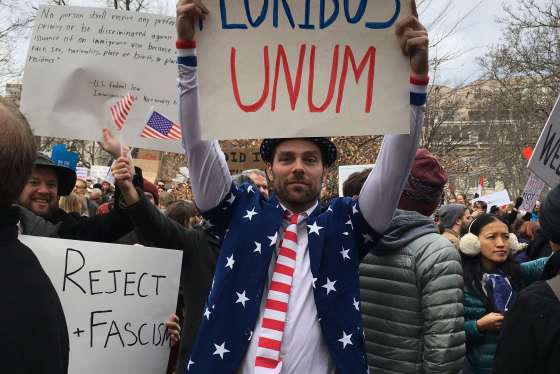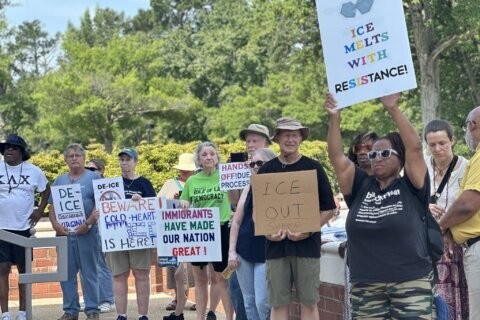ALEXANDRIA, Virginia — A federal judge expects to issue a decision “shortly” on President Donald Trump’s revised ban on many travelers from six Muslim-majority nations.
Judge Anthony Trenga heard about two hours of arguments Tuesday morning from Gadeir Abbas, a lawyer from the Council on American-Islamic Relations, and from Chad Readler, the Department of Justice’s acting assistant attorney general for the civil division.
Abbas focused on what he called the unconstitutionally separate treatment people from the six countries, which he says were still singled out due to their majority-Muslim populations, face under the order. He pointed to the call for a “Muslim ban,” which is still on President Trump’s campaign website, as a sign the order was about religion, not about safety.
Readler argued that the revised order does not explicitly target Muslims, and also that many traditional protections against the government favoring or disfavoring one religion or another do not apply when the issues relate to national security.
“The President could have said ‘I’m denying entry’ … full stop,” and it would have been completely legal, Readler argued.
“All of these statements were made in the context of national security,” Readler said of President Trump’s statements about a Muslim ban and similar comments from top administration officials.
“There is no border exception to the establishment clause,” Abbas responded.
Abbas added that “there’s no unringing of the bell,” especially given additional statements from the administration over the last several weeks. Abbas also pointed to a Department of Homeland Security report that concluded a person’s nationality alone is a poor predictor of who will commit violent or terrorist acts.
Readler acknowledged that even before this executive order, the process to apply for a visa, including background checks and interviews, could take months or years.
“Of course” this won’t stop that process, he said, despite the three-month freeze on some actions called for in the order.
Readler said that while courts in Maryland and Hawaii have put parts of the revised executive order on hold, the State Department and Department of Homeland Security are moving forward with adding waiver applications to the visa process for people still attempting to come to the United States from the countries covered by the order.
That is one reason Abbas, the CAIR lawyer, argued that there should be a broader injunction or restraining order that would put the entire executive order on hold.
The order shows a “bare and base desire to disfavor Islam and disfavor Muslims,” Abbas said.
If the rationale is that terrorists could be accidentally let into the country if the State Department continues to issue visas on a case-by-case basis, Abbas asked, why is it OK to handle waivers on a similar case-by-case basis?
The judge pressed Abbas on whether any of his clients, who include a husband trying to bring his pregnant wife to the United States from Sudan, are suffering any immediate problems from the order now that some of the most significant parts have been put on hold by other courts.
“We don’t know what’s going to happen in the case in Maryland or the case in Hawaii,” Abbas said.
Trenga told the lawyers in this case to expect a ruling “shortly” on whether he would issue a temporary order of any kind limiting the executive action.
Abbas said after the hearing that he hopes a ruling will come this week.
The Fourth Circuit Court of Appeals in Richmond is already expecting briefs from lawyers in the Maryland case next month.








